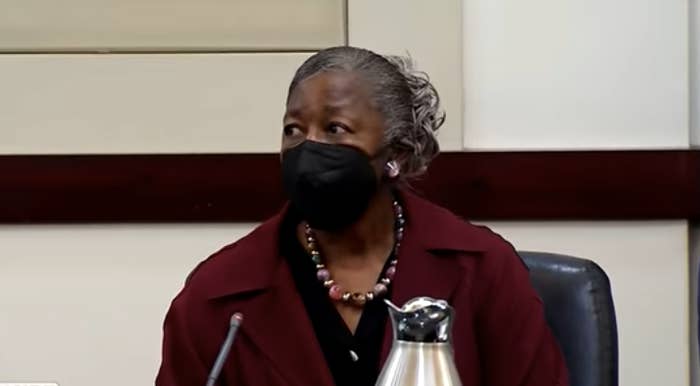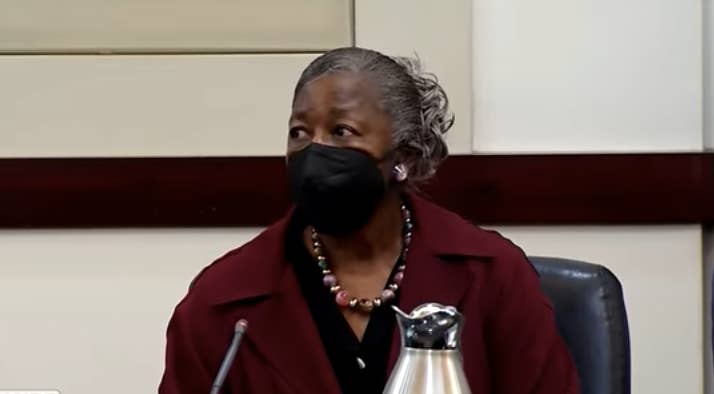
Joyce Watkins had been on parole since 2015, but it wasn’t until Wednesday when she was exonerated, that she was truly free. She spent 27 years in prison after being convicted of first-degree murder and aggravated rape.
Watkins is the first Black woman to be exonerated in Tennessee and the third woman in the state’s history.
To date, there have been over 2,800 exonerations of both men and women in the U.S. according to the National Registry of Exonerations. Blacks make up 40 percent of that number and are seven times more likely to be wrongfully convicted of murder than white people.
In 1987, Watkins and her then-boyfriend Charlie Dunn went to Kentucky to collect her four-year-old great-niece Brandi. An hour and a half after arriving home, Watkins noticed blood in Brandi’s underwear. When the four-year-old became unresponsive, she immediately took her to Nashville Memorial Hospital. Brandi died a day later—cause of death was severe vaginal injury and head trauma.
It was never made clear as to why Brandi wasn’t with her mother, though social workers had received complaints and reports of abuse in reference to another one of her’s great-aunts—Rose Williams, which is where she was staying prior to Watkins and Dunn picking her up. Brandi’s mother was in Georgia at the time. Nothing came of the social worker investigations.
A year later, Watkins and Dunn were both arrested and convicted. In 2015, when they were up for parole, Watkins was released. Dunn died suddenly before being released.
Watkins immediately sought the help of the Tennessee Innocence Project. “We got this case because she (Joyce) came to us,” Jason Gichner, senior legal counsel with the Tennessee Innocence Project told CNN. “She just showed up at the office and said, ‘Let me tell you my story. I need your help.’”
According to The Registry of Exonerations, “a Black prisoner serving time for sexual assault is 3.5 times more likely to be innocent than a white sexual assault convict.”
A report was filed on November 10, 2021 asking that Watkins and Dunn’s convictions be overturned. Several variables proved their innocence—most prominently, the medical examiner’s original report that said the abuse took place within the nine hour window in which Brandi had been under the supervision of Watkins and Dunn.
That report, filed by Dr. Greta Harlan was later recanted and said that the injuries could have been inflicted 48 hours before Watkins retrieved Brandi. According to CNN, Dr. Shipla Reddy said in the new report that Harlan’s “methodology for dating the head injury based upon a lack of histiocytic response in the brain tissue is not a legitimate method for dating pediatric head trauma.”
Detectives did not question any of the people Brandi had been around—including the soldiers on the army base where she’d been staying with Williams and where the rape was later suspected to have occurred.
In November of last year, Muhammad A. Aziz and Khalil Islam were exonerated for the assassination of activist and revolutionary Malcolm X. Reports filed on their behalf by Manhattan District Attorney Cyrus Vance Jr. and the Innocence Project revealed that the FBI and the NYPD withheld evidence that would have corroborated Aziz and Islam’s innocence when they were originally on trial. As with Watkins and Dunn, NYDP failed to question possible suspects and other people of interest.
Like Dunn, Islam who died in 2009, was posthumously exonerated.
Watkins told Fox17 Nashville, “I thank all the people for their prayers and helping me get out of this mess which has cost me half of my life for nothing. But I’ll get over it.”

